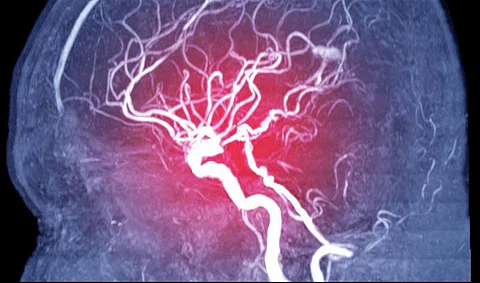FRIDAY, Nov. 5, 2021 (HealthDay News) -- Smoking, insomnia, and high blood pressure may be risk factors for intracranial aneurysm and aneurysmal subarachnoid hemorrhage, according to a Mendelian randomization study published online Nov. 3 in the Journal of the American Heart Association.
Ville Karhunen, Ph.D., from Imperial College London, and colleagues examined associations of modifiable lifestyle factors and cardiometabolic factors with risks for any intracranial aneurysm and aneurysmal subarachnoid hemorrhage using Mendelian randomization.
The researchers observed associations for genetic predisposition to smoking, insomnia, and higher blood pressure with an increased risk for intracranial aneurysm and aneurysmal subarachnoid hemorrhage. For intracranial aneurysm, the odds ratios were 3.20, 1.24, and 2.92, respectively, per standard deviation increase in smoking index, per unit increase in log-odds of insomnia, and per 10 mmHg increase in diastolic blood pressure. Weak evidence was seen for associations of genetically predicted decreased physical activity, higher triglyceride levels, higher body mass index, and lower low-density lipoprotein cholesterol levels with an increased risk for intracranial aneurysm and aneurysmal subarachnoid hemorrhage; for at least one of the outcomes, 95 percent confidence intervals overlapped the null.
"The association between insomnia and intracranial aneurysm has not been reported previously, and these findings warrant confirmation in future studies," a coauthor said in a statement. "Our research supports the thinking that risk factors that people can change or manage may impact brain aneurysms and hemorrhage risk."
One author disclosed part-time employment by Novo Nordisk.
Abstract/Full Text (subscription or payment may be required)


